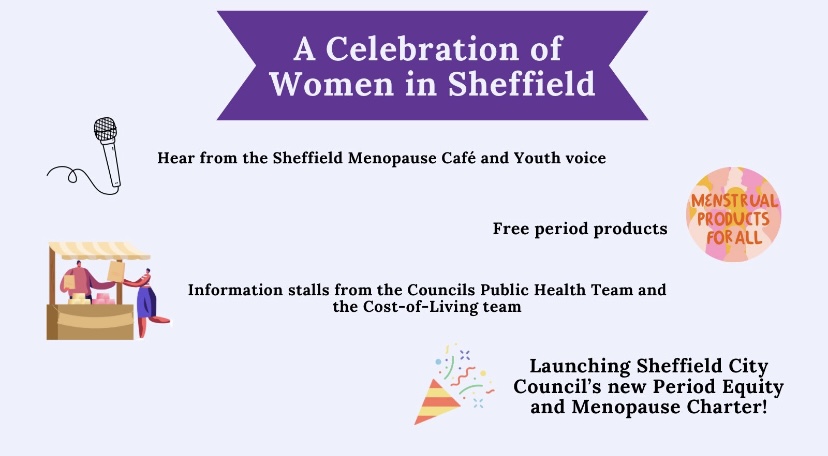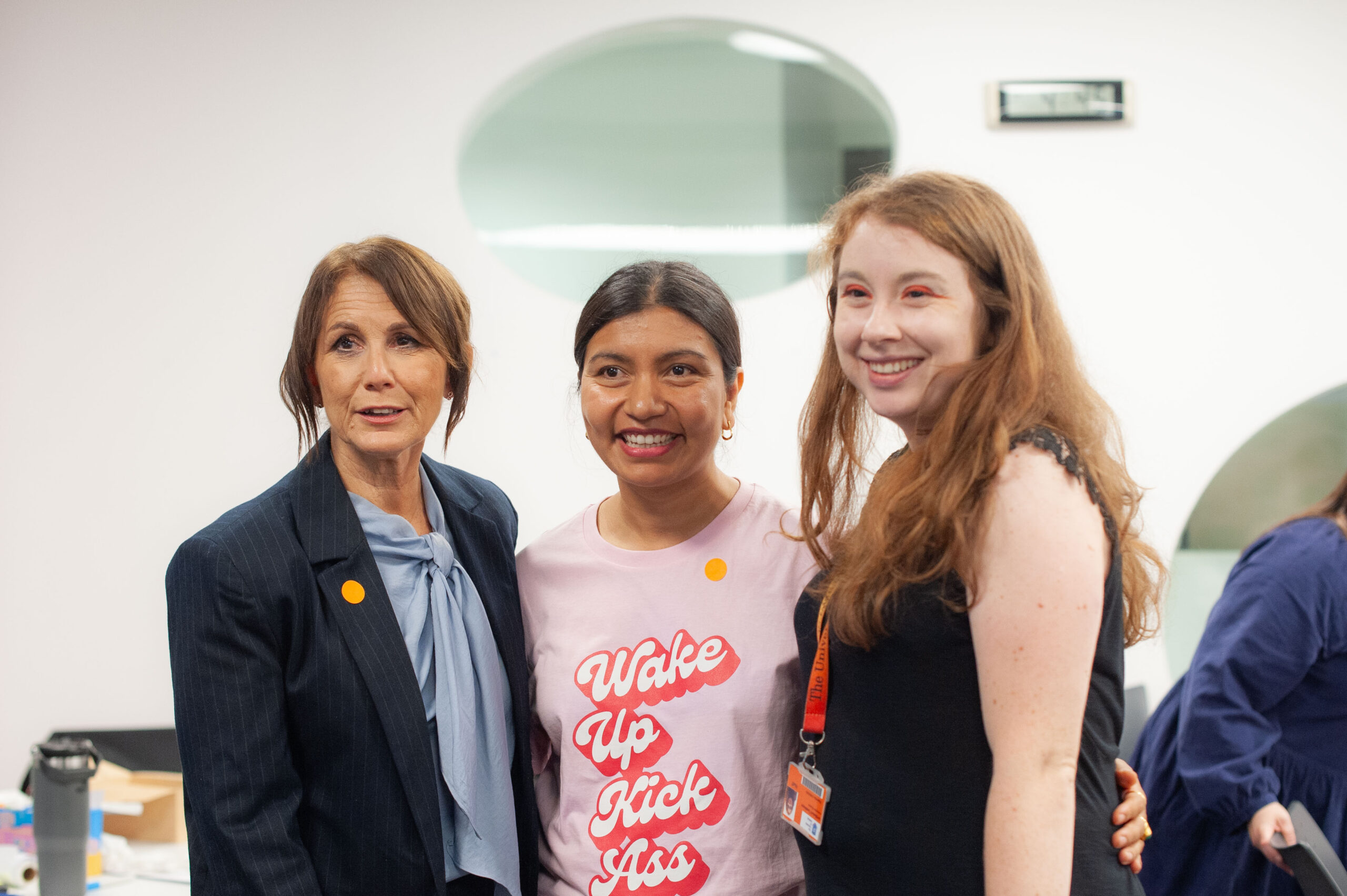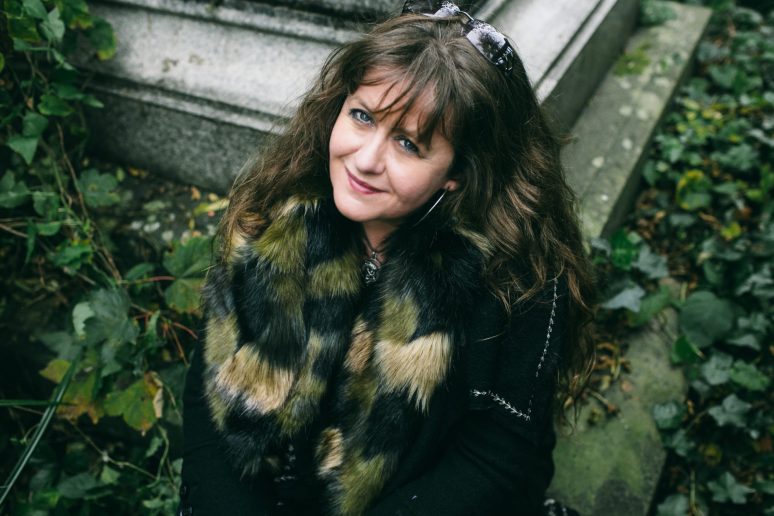As part of International Women’s Day, a Sheffield charity are taking part in an event to raise awareness of women who suffer from period poverty and menopause.
Irise International will be attending ‘A Celebration of Women in Sheffield’ at Sheffield City Hall on 8 March and will mark the City Council’s new Period Equality and Menopause Charter.
There will be information stalls from the Council’s Public Health and Cost-of-Living team, as well as hearing from Sheffield Menopause Café and Youth voice.

Beth Dixon, 21, who is a committee member for the University of Sheffield’s Period Action Society, and supports Irise International, says: “Irise has been one of the major contributors to the period poverty aspect [of the Charter] and how we can end period poverty in Sheffield and break down barriers and stigma in discussion about menopause. They’re looking at educating employers better about the effects of menopause on their staff and how they can help women with that as a company.
“They will also be giving out free period products and there will also be contributions from Sheffield Menopause Cafe.
In March 2023, Sheffield became the first city to launch a Period Equality and Menopause Charter, which aims to get rid of the stigma surrounding menstruation and menopause.
The charter, which will be launched next week, was put forward by Councillor Jayne Dunne and Julia Grocutt after originally passed unanimously at Council in November 2022. The charter aims to supply free period products in public buildings, as well as work with schools to develop a free period product scheme, and launch a ‘menstrual leave’ policy alongside creating a workplace model that supports women suffering from menopause.
Emily Wilson, CEO of Irise, says: “We pushed really hard with the charter to think about the whole journey. It has really brought a lot of diverse people together and I see that as quite exciting and special to Sheffield that we are able to bring everyone together, get them in a room and have these conversations with so many different people. Being involved in the process is something that is a really beautiful thing for me. Obviously what’s written on the paper is one thing, but I think what’s more important and more special is the conversations that we had around it and the people that came together, so that would be Irises’ take on the whole thing.”

The Charter aims to prevent women from being disadvantaged at work due to the stigma of discussing menopause in the workplace, as well as adapting a supportive workplace model, which includes manager and staff training on issues around menopause. It will aims to encourage a more progressive and inclusive approach towards supporting those going through menopause, as well as looking at period poverty as part of the cost-of-living crisis, exploring ways to supply free period products, and encouraging schools to join the Government’s free period products scheme.
Dr Maria Tomlinson, 33, a lecturer in the School of Journalism, Media and Communication, at The University of Sheffield, says: “I’ve been involved with the Charter for quite a few months now, I was invited by Jayne Dunn who has always been a very strong advocate for women experiencing menopause, so she got together a group of experts from the local area to create a Charter around menstruation and menopause. This is really exciting because it shows they have the city’s commitment to supporting women and people who menstruate and go through menopause. It’s about making sure that schools and workplaces in Sheffield support women or people who menstruate who go through menopause.
“The Charter mentions the guidance from the British Standards Institute. I worked with them and a panel of experts to create guidance for employees who experience menstruation and menopause in the workplace and that’s already having a massive impact – it’s been downloaded a couple of times and various organisations in the UK are implementing it.”
Menopause and perimenopause – the period of time which the body takes to transition into menopause – are not specifically covered under The Equality Act 2010. However, if someone is treated unfairly in the workplace because of menopause, it could amount to discrimination, for example, under sex, disability, or age. The new ground-breaking Charter will help ensure that this never happens, with a solid contribution towards creating a supportive workplace model for women suffering from menopause, which local businesses and organisations will be encouraged to implement.
Michelle Britton, 52, an NHS Administrator, says: “The more information there is, the more people are educated. It will allow managers to make more informed decisions about how they fit work around women’s needs. Any sort of education going forward can only be a good thing. It allows us to take steps forward for future generations. Women now are more open about menopause and menstruation compared to years ago when you couldn’t have open discussions about feminine issues.”
According to UCL News, an online study found that nine in ten women were never educated about the menopause and over 60% only started learning about menopause once their symptoms have started. Due to the significant impact of menopause and the lack of workplace support, The Menopause Charity estimates that ten percent of women need to leave their jobs when they go through menopause.
Mrs Britton says: “ I do think we’ve taken more steps forward recently, with a few celebrities coming forward and talking about it like Davina McCall. In the last six months to a year, there have been more women talking about it compared to my mum’s generation. However, these conversations are still within female circles. So if you are working in an office that is predominantly male, they are not going to know anything about menopause. “I just try day to day to not let it affect me too much. I’m not going to let the menopause define who I am.”
Approximately 13 million people are currently experience menopause or perimenopause in the UK, which is equivalent to a third of the UK female population. Menopause can cause a range of physical and mental symptoms that can last for many years. Symptoms include anxiety, mood swings, hot flushes, brain fog, and irregular periods.
Anastasia Linardi, 52, a baker from Athens, who currently lives in Belfast, says: “Menopause has affected my daily life and routine dramatically. The menopause symptoms are so hard to live with, and also trying to hide and act normal at the same time. It is a condition that you have to learn to live with.
“I think the Menopause and Period Equality Charter in Sheffield can be informative and supportive to the suffering individuals. I have read a lot about the menopause and that has helped me. Providing more knowledge and information will be helpful to understand the situation that the suffering individuals are getting through, and it will help to overcome the stigma.”
‘A Celebration of Women in Sheffield’ held at Sheffield City Hall on 8 March from 10am until 12pm.




